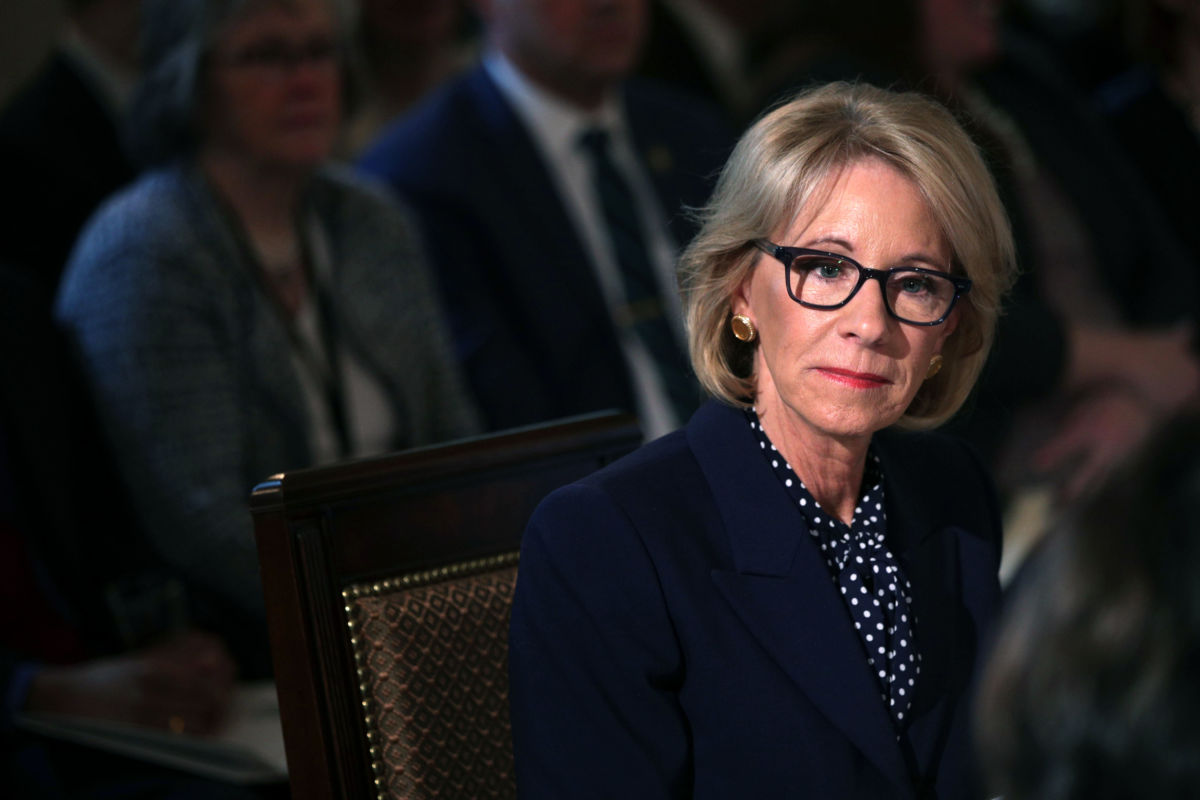Support justice-driven, accurate and transparent news — make a quick donation to Truthout today!
People who chose to take lower-paying public service jobs after college or graduate school are still getting screwed over by the Trump administration.
A new report from the nonpartisan Government Accountability Office found that, from May 2018 to May 2019, only 1% of all applications have been approved by the Department of Education, led by Secretary Betsy DeVos. Worst of all, this is supposed to be a new, expanded type of loan forgiveness.
In 2007, Congress passed the Public Service Loan Forgiveness Program with bipartisan support. If students choose public service jobs, such as being a firefighter or teacher, and make 120 on-time payments against their student loans, the balance was to be forgiven. However, as the first group became eligible for loan forgiveness in 2017, vanishingly few applications were being approved.
In response, Congress passed a temporary fix in May of that year to make it easier for students to obtain relief. That fix was necessary in part because, after years of making on-time payments in good faith, students were told they were somehow ineligible for PSLF. So Congress created and funded TEPSLF — Temporary Expanded Public Service Loan Forgiveness. That expansion was supposed to help those borrowers, and Congress ordered the Education Department to create a simple method by which borrowers could apply.
It hasn’t happened that way at all. Instead, under Betsy Devos, the department has overwhelming denied applications for that version of the program as well. And although they were ordered to create a more straightforward process, the department has still maintained a complicated two-tier method of applying for TEPSLF.
This failure to extend congressionally mandated loan forgiveness isn’t because Congress demanded a fix without providing funding. A total of $700 million was allocated for TEPSLF — but the department has only paid out $27 million.
Melissa Emrey-Arras, who led the review for the GAO, said her office was “disheartened” and “discouraged” by the results of the investigation. “You don’t want borrowers to be confused about the eligibility criteria and to face a high denial rate. And yet, that’s what we found.”
You’re forgiven if a story about sky-high denial rates seems familiar. In July 2019, the American Federation of Teachers was forced to sue over low approval rates in the original PSLF. The forgiveness rate there is still hovering around 1%.
This isn’t the only way in which DeVos is trying to harm student borrowers. She’s also made it harder for students who attended shady for-profit schools to obtain loan relief when it became clear those schools had lied about their program offerings and job placement rates. She’s also proposed eliminating the PSLF program entirely.
Sadly, this is just another way in which this administration shows it doesn’t care about anyone except the ultra-rich. Students entered into these programs in good faith and chose lower-paying careers based on the promise of loan forgiveness down the line.
The GAO informed the department that it needed to drastically simplify the approval process, including making applications simpler and requiring loan servicers to include information about TEPSLF on their websites. The GAO reported that the administration agreed with the recommendations. However, under DeVos, the department is bound to come up with another way to refuse relief.
Media that fights fascism
Truthout is funded almost entirely by readers — that’s why we can speak truth to power and cut against the mainstream narrative. But independent journalists at Truthout face mounting political repression under Trump.
We rely on your support to survive McCarthyist censorship. Please make a tax-deductible one-time or monthly donation.
